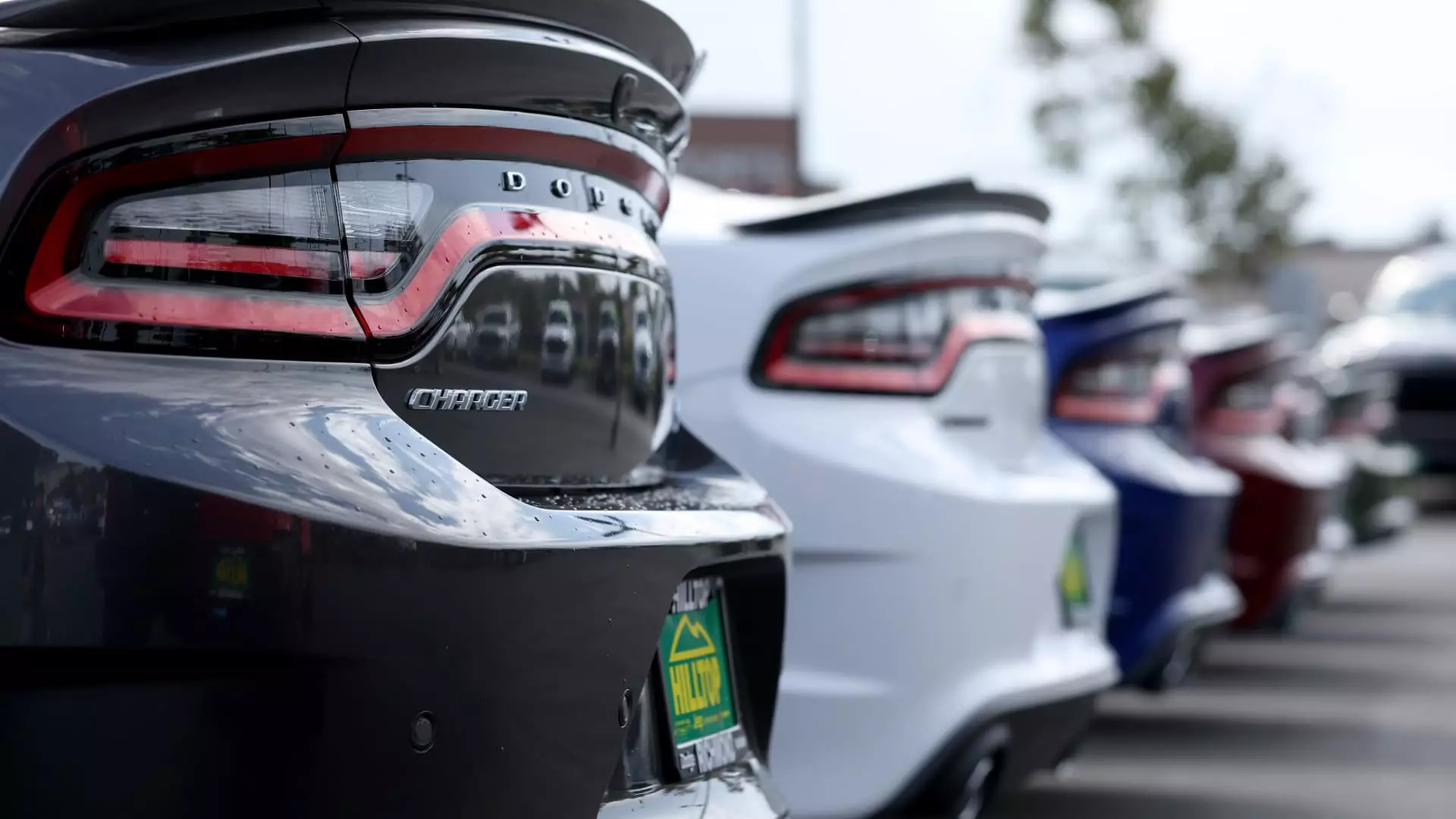The automotive industry in Europe is reeling from alarming profit warnings released by major players like Stellantis and Aston Martin. The recent financial forecasts reflect mounting challenges stemming from increased competition in the market, especially from Chinese manufacturers, alongside persistent supply chain issues and macroeconomic instability. This article explores the implications of these developments and the broader context in which they are occurring.
As the latest financial news broke on a Monday morning, European carmakers witnessed a significant drop in their stock values, with Stellantis and Aston Martin leading the way. Stellantis, the French-Italian automobile giant known for its diverse portfolio including brands like Chrysler and Jeep, made a bold adjustment to its sales forecast for 2024. The company attributed its need to lower guidance to “deteriorating global industry dynamics” and intensified competition from Chinese manufacturers seeking to claim larger market shares. Consequently, shares plummeted by 13% shortly after the markets opened.
Aston Martin, the luxury brand synonymous with cinematic elegance, warned of a production cut of approximately 1,000 units. This decision stemmed from persistent supply chain disruptions and a macroeconomic climate that has continued to weaken, particularly in China. With a stock slump of around 23% reported at the same time, the luxury automaker’s warnings underscore a larger sell-off in European automotive equities, as investors react to deteriorating operational forecasts. This rapid decline raises questions about investors’ confidence in the sector, hinting at a potential restructuring period ahead as companies recalibrate their strategies.
The market turbulence facing Stellantis stems not only from heightened competition abroad but also from internal operational challenges. Reports indicate that Stellantis has faced scrutiny from shareholders after allegations surfaced concerning the company concealing mounting inventories. Accusations such as these erode investor trust and raise concerns about corporate governance. On a broader scale, the situation reflects a massive shift in consumer preferences amid a transition toward electric vehicles (EVs), as traditional powerhouses struggle to adapt quickly enough to these changes.
Similarly, Aston Martin’s troubles are rooted in a combination of factors that extend beyond mere profit expectations. The company, long reliant on its premium branding tied to popular culture, is confronting a market that has become increasingly volatile and competitive. Aston Martin’s acknowledgment of the need to address supply chain issues indicates a recognition that these are not mere short-term problems but rather significant challenges that will require long-term strategic adjustments to reclaim market standing.
The warnings from Stellantis and Aston Martin arrive on the heels of similar announcements from Volkswagen, another automotive giant unable to evade the pressures of a shifting market. With Volkswagen’s operating return falling short of previous expectations, it is clear that the entire European sector is grappling with dynamics that threaten long-term growth and sustainability.
The pressures on European car manufacturers stem from an increasingly aggressive approach by Chinese competitors, particularly in the realm of electric vehicles. As Chinese brands expand their reach into the European market, European automakers are not only faced with an increasingly competitive landscape but also the challenge of maintaining profitability amidst a consumer shift towards electric options. ING analysts have underscored that the ongoing shift to EVs is placing immense pressure on legacy car manufacturers, further compounded by stagnant sales figures that have yet to recover to pre-pandemic levels.
Additionally, the macroeconomic environment presents yet another layer of complexity. Economic uncertainty derived from geopolitical tensions, fluctuating raw material costs, and evolving regulatory frameworks are contributing to an increasingly challenging atmosphere for European automakers. The cumulative effect of these elements has led many manufacturers to reconsider their financial forecasts and operational strategies.
In light of these considerable challenges, European automakers must recalibrate their approaches to remain relevant in an evolving market. Increased investment in electric vehicle technology and innovative supply chain management strategies will be crucial. Moreover, fostering stronger relationships with stakeholders—including suppliers and customers—will be essential for navigating the tumultuous waters ahead.
As Stellantis focuses on addressing its operational inefficiencies and Aston Martin reassesses its production capabilities, the industry must collectively recognize that long-term survival hinges upon reinvention. The unique complexities and competitive landscapes presented by emerging markets like China will require European brands to not only adapt but also thrive, redefining what it means to be a leader in the automotive space.
The profit warnings from Stellantis and Aston Martin are reflective of deeper, systemic issues within the European automotive sector. The future remains uncertain, but addressing these challenges head-on may offer a pathway toward renewed vitality in the face of relentless competition and changing consumer preferences.

